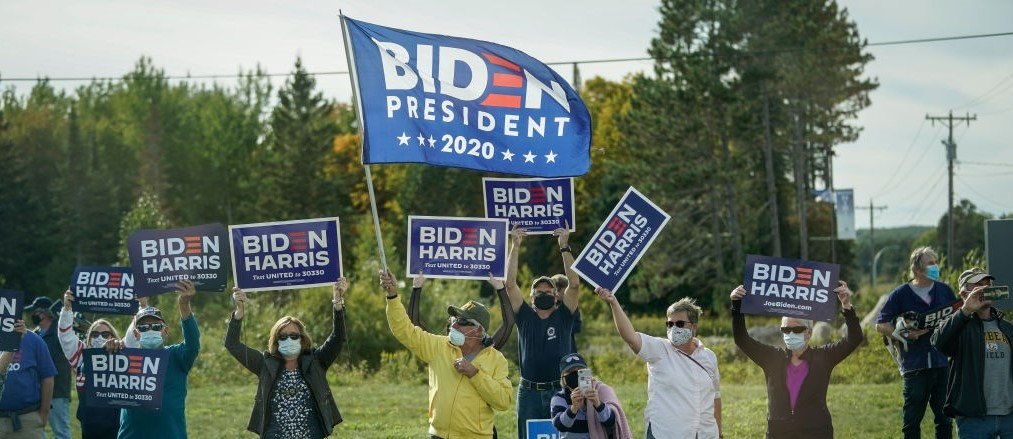The Democratic presidential nominee, former Vice President Joe Biden, continues to lead President Donald Trump among likely voters nationally – this week by seven points – but the latest Economist/YouGov Poll finds many of Biden’s supporters are decidedly jittery about what will happen on November 3.
The nervousness of the Biden voters can be seen when asked their expectations for the outcome. Nearly all the president’s voters expect he will win – but fewer of Biden’s voters expect a victory for their candidate.
It’s not that Biden voters believe the president will be the victor, though some think that. It’s more than a quarter of them claim they aren’t sure what will happen in November. That’s especially the case among Biden supporters who say they are casting a vote mainly against Trump. These voters may be worried about an election where the popular vote winner does not receive an Electoral College majority, as America saw in 2016.
President Trump has given his supporters reason to be nervous, too. His attacks on vote-by-mail means that his voters also disapprove of mail voting, and they are far less likely than Biden voters to vote by mail. More than two-thirds of Trump supporters disapprove of voting by mail – and just 22 percent say that is what they will do (that small group of Trump voters approves of mail voting, 57% to 28%). In-person Trump voters aren’t especially worried about the possibility of the coronavirus spreading at the polls: 42 percent of them believe it is safe to stop social distancing now, and most think it will be safe to do so by Election Day.
But Trump voters are more nervous than Biden supporters when it comes to having a great deal of confidence that their vote will be accurately counted. They are also less likely than Biden voters to believe the election will be held fairly, perhaps agreeing with the president, who said in August, “The only way we’re going to lose this election is if the election is rigged.”
Biden’s margin is boosted by the 10 percent of likely voters who did not vote in 2016, half who are under the age of 30. Biden enjoys a 23-point lead among likely voters under 30. Black voters overwhelmingly favor Biden (78% vs. 2%), and so do Hispanics (61% vs. 24%). White voters, as they did in 2016, favor the president (47% vs. 36%).
This is a critical election, according to nearly all likely voters – 95% say it is very important to vote this year, and on this, Biden and Trump voters agree. They also agree this election is a referendum on the president: 57 percent of Biden voters think of their vote as one against the resident, not necessarily a pro-Biden vote. Three in four (75%) of the president’s supporters say they are voting for him, not against Biden.
For the most part, Biden voters are enthusiastic about casting a ballot this year, though not quite as enthusiastic as Trump supporters are. Two-thirds of Biden voters say they are very or extremely enthusiastic about voting this year – but somewhat more Trump voters (75%) describe themselves that way. How people explain their vote for Biden affects this gap: enthusiasm for voting is higher among those Biden voters who are mainly voting for the former vice president than among those mainly voting against the incumbent president. Still, a majority in that latter group are very or extremely enthusiastic about voting this year.
Related: How Americans remember Justice Ginsburg, and what comes next on filling her seat
See the toplines and crosstabs from this week’s Economist/YouGov Poll
Methodology: The Economist survey was conducted by YouGov using a nationally representative sample of 1,500 U.S. adult citizens interviewed online between September 20 - 22, 2020. This sample was weighted according to gender, age, race, and education based on the American Community Survey, conducted by the US Bureau of the Census, as well as 2016 Presidential vote, registration status, geographic region, and news interest. Respondents were selected from YouGov’s opt-in panel to be representative of all US citizens. The margin of error is approximately 3.6% for the overall sample.
Image: Getty









